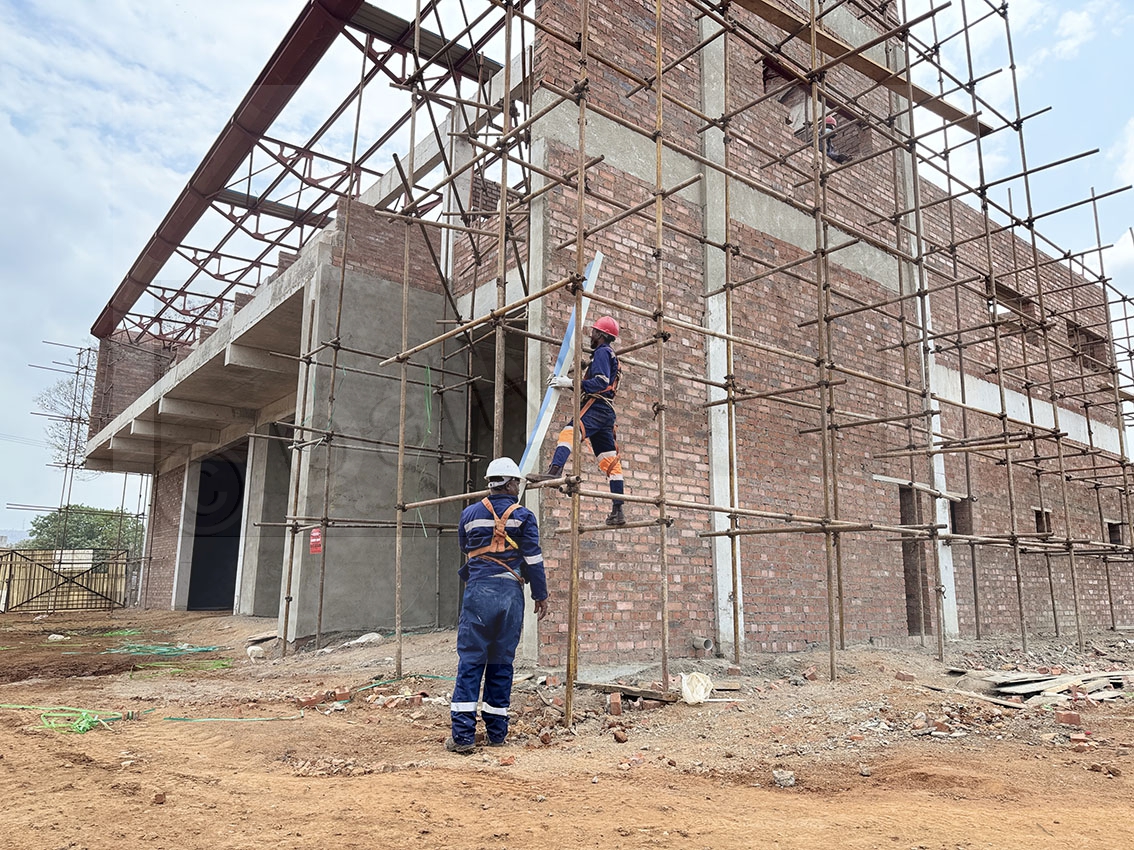First Zone 6b cattle consignment off to Maun
05 Mar 2023
Maun abattoir will soon start slaughtering Foot and Mouth Disease (FMD) infected cattle from Zone 6b.
The first consignment of close to 200 cattle left Butale village, which is the epicentre of the disease, under a heavily armed escort on Thursday to the abattoir.
The animals had been kept in a containment zone, where they were vaccinated and quarantined for a period of not less than 30 days, before being transported to the approved abattoir.
In September last year, government took a final decision to depopulate the area and compensate farmers for the killing of all the 10 000 FMD infected cattle in Zone 6b.
The zone covers the villages of Jackalas 1, Jackalas 2, Tsamaya, Siviya, Senyawe, Tshesebe, Ramokgwebana and Butale.
Speaking in an interview at the loading Bay in Butale, acting deputy director (Disease and Control) in the Ministry of Agriculture, Dr Bernard Mbeha said they expected the exercise to take up to four months.
He explained that Botswana Meat Commission (BMC), which was the receiving entity, had engaged about 10 commercial trucks to transport live animals from Zone 6b through FMD green zones; 6A and 3b.
“These trucks are traversing FMD free zones.
That is why we engaged an armed escort for disease control measures,” he added.
Dr Mbeha revealed that other teams had been deployed at Makalamabedi and Dukwi veterinary gates, to check on the wellbeing of the animals and that the trucks had not been tampered with.
“Everything is timed so that there is no mistake that can result in the spread of the virus in these FMD free zones,” he said.
He explained that should an accident or any other emergency occur, like the truck discharging its cargo, all the animals in that truck(s) would be destroyed and burnt immediately.
Dr Mbeha said the slaughtering of the animals was primarily meant to maintain the area’s green zone status and save the country’s cattle industry.
“We should understand that this is a disease eradication measure to protect the economy of the country,” he added.
He also indicated that security will continue to be very tight at the loading bay for the duration of the exercise.
He explained that the Maun abattoir was expected to slaughter 120 animals per day, adding that the ministry was, therefore, expected to collect sufficient animals to feed and meet the demand of the abattoir.
Dr Mbeha explained that the meat would be canned to ensure that the virus is completely eradicated, adding that it would be sold locally.
He said farmers were free to slaughter small stock (sheep, goat and pigs), because the FMD virus was not detected in any of them.
The farmers indicated that they had been awaiting the depopulation process with mixed emotions.
Mr Zenzo Mudongo of Borotsi ward in Butale called on the government to speed up the process, as seeing the animals daily was sheer torture.
He said some of their cattle had given birth and had it not been for the outbreak, they would be counting their blessings.
Another farmer, Mr Jealous Sibanda from Senyawe appealed to government to speed up the restocking exercise as livestock was the backbone of their livelihoods.
Initially, government had set a compensation fee of P2 840 per beast, but later increased it to P3 000, after the farmers complained.
In addition, the bulk of the proceeds accrued from the sale of the meat will be given to the farmers, while government will only retain money used for transporting cattle from the affected areas to the abattoir. Ends
Source : BOPA
Author : Thamani Shabani
Location : Butale
Event : Interview
Date : 05 Mar 2023






